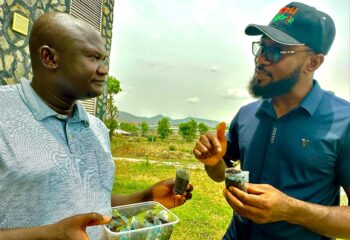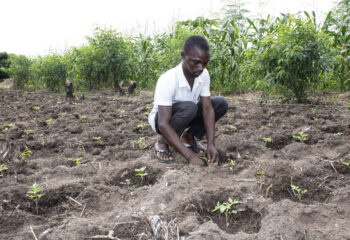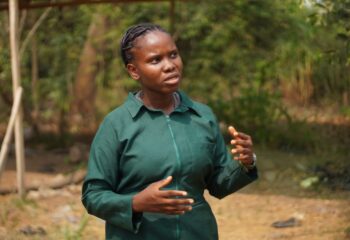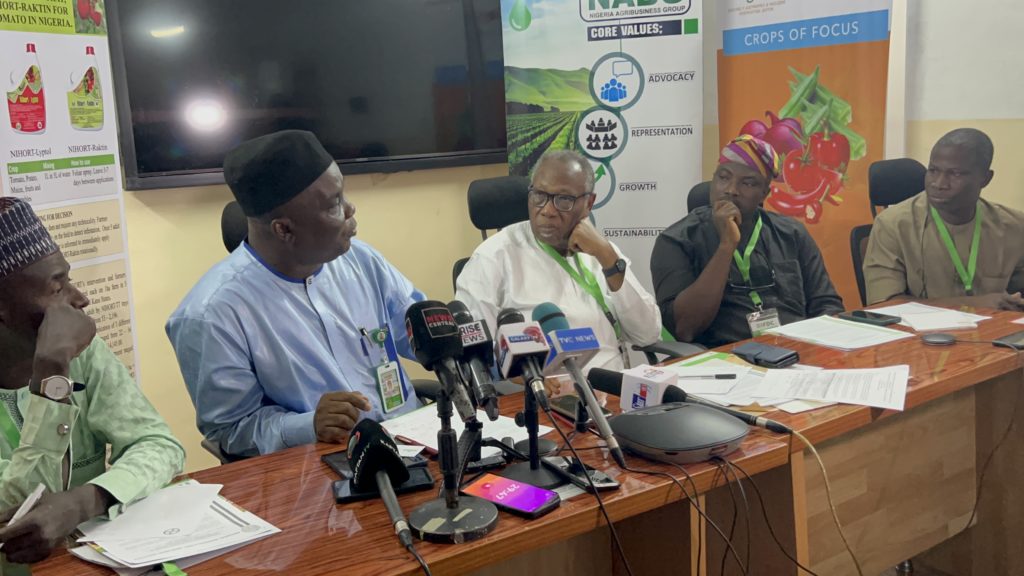
On April 25, 2023, the HortiNigeria program collaborated with the Nigeria Agribusiness Group (NABG) to host key stakeholders in the tomato sector, including the Federal Ministry of Agriculture and Rural Development (FMARD), National Horticultural Research Institute (NIHORT), Croplife, and National Tomato Growers, Processors and Marketers Association of Nigeria (NAPTAN), providing a forum to discuss solutions to the recent invasion of the tomato pest Tuta absoluta.
Chief Emmanuel Ijewere, NABG President, said that to avoid a repeat of the devastation caused by Tuta absoluta in 2016, actors in the sector must collaborate to harness the resources needed to address the issue early and reduce the negative consequences that will be felt across the value chain – from farmer to consumer. Dr. Manzo Maigari, NABG Director General, added that farmers in affected states will have the benefit of seeing demonstrations of strategies for containment and prevention by technical officers in the field.
“We will work with farmers and agro-input dealers, showing them the techniques and technologies needed to combat this small but disastrous pest.”
Mohammed Salasi Idris, HortiNigeria Program Director
Tuta absoluta, a species in the moth family, is a destructive pest that destroyed many tomato farms in Nigeria in 2015. The loss of yields led to scarcity and increased the cost of tomato, a daily vegetable staple for most Nigerian families, leading households to opt for less nutritious alternatives.
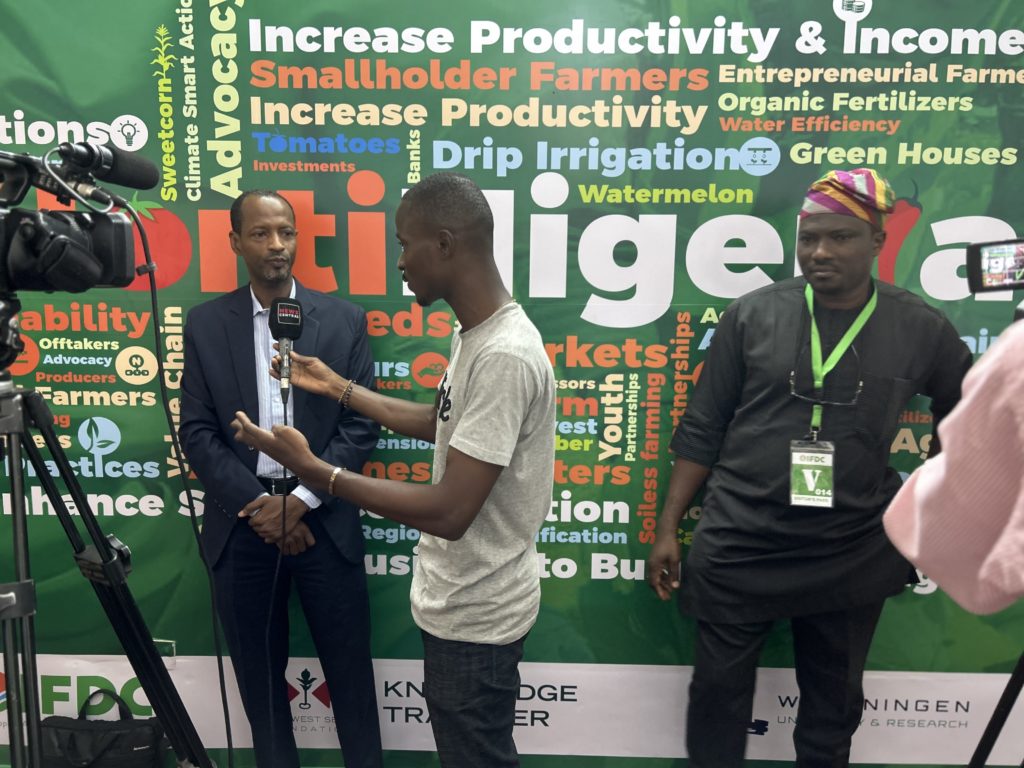
Mohammed Salasi Idris, HortiNigeria Program Director, stated that one of the reasons why this pest ravaged farms so severely in the past was a lack of awareness by most farmers about how to treat it. This time, HortiNigeria hopes to help farmers understand what they are dealing with and how to address it. Idris explained that the program’s demonstration fields were not affected despite the pest attack on neighboring farms. “We will work with farmers and agro-input dealers, showing them the techniques and technologies needed to combat this small but disastrous pest.”
NIHORT has developed sustainable, environmentally friendly Integrated Management Packages that include the biopesticides Lyptol and Raktin, which effectively kill the egg and the damaging larvae of the pest, and a trap tray, which eliminates the adults. NIHORT has successfully demonstrated these technologies and trained farmers on their use in Kano, Kaduna, Katsina, Jigawa and Plateau states. NIHORT has also aired radio spots on controlling Tuta absoluta on Arewa FM Kano, FRCN, and Freedom Radio Kano. NIHORT distributed 2,000 liters of Lyptol to farmers across the northern states in 2020 and recently produced 4,000 liters of the biopesticides and 500 trap trays for farmers’ use.
Alhaji Sani Danladi, National Secretary of NAPTAN, is already estimating the losses caused by Tuta absoluta on more than 300 hectares of land. The Director, Horticulture, FMARD, Dr. Deola Lordbanjou, further estimated the cost of the Tuta Absoluta in Kano to be about N1.3 billion. These losses will lead to astronomical increases in prices, reducing the accessibility and availability of nutritious foods.
The HortiNigeria program, funded by the Embassy of the Kingdom of the Netherlands in Nigeria, is implemented by the International Fertilizer Development Center (IFDC) and its consortium partners, East-West Seed Knowledge Transfer (EWS-KT), Wageningen University and Research, and KIT Royal Tropical Institute.
NABG is a private sector platform of agribusinesses working together to grow Nigeria’s agricultural economy, creating jobs and lifting millions out of poverty. Their investments cut across the entire value chain, from input to output markets, export markets, equipment and consumer food manufacturing.


